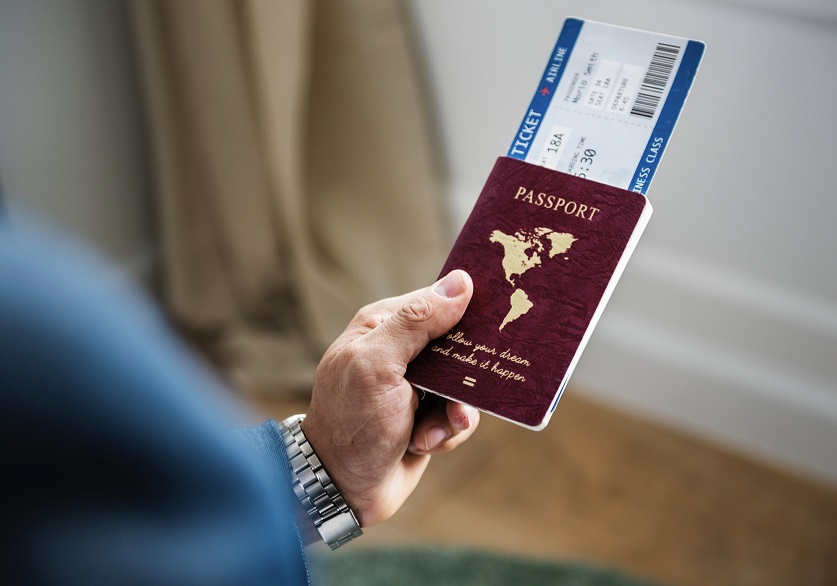When planning your trip to Japan, it’s essential to ensure that you have the correct documents. It includes your passport and visa.
Unless you are a citizen of one of the visa-exempt countries, you will need a valid passport and a Japanese visa to enter Japan. Several types of visas are available, including an eVisa.

Passport
When traveling to Japan, having a passport is vital. If you do not have one, you must apply for a visa from your local embassy before entering the country.
Japan’s passport is considered one of the strongest in the world, allowing visa-free entry into 190 countries. It is an excellent option for business people traveling to several destinations yearly.
The Japanese passport has two main types: ordinary and official. Regular passports are issued to average citizens of Japan, while official passports are given to members of the National Diet and public servants.
Those who hold an ordinary passport must present it to authorities at all times, including in airports and customs. They must also show an onward or return ticket, confirmed accommodations arrangements, and proof of sufficient funds to cover their stay.
If you travel on an ordinary passport from China, Indonesia, Vietnam, Philippines, India, or Russia, you must obtain a tourist visa before entering Japan. It can be lengthy, so it is best to prepare your visa as soon as possible after booking your trip.
Visa
A visa (also referred to as a permit) is a document that grants you permission to enter and stay in a foreign country. There are many different types of visas, including tourist visas and working visas.
When deciding which visa is best for you, it is essential to understand the requirements for your specific case. It includes the duration of your stay in Japan, where you can enter the country, and what authorized activities you may do there.
In addition to the Japan visa requirements, you must have a valid passport and travel insurance before your trip. Having these documents is essential for your safety and security while traveling abroad.
It is also a good idea to check the latest vaccination and health guidelines from the Japanese government. You can do this on the Ministry of Health, Labor, and Welfare website.
If you plan to visit Japan as a tourist, you must have proof of vaccination against COVID-19 or a negative pre-departure PCR test. The vaccination certificate or pre-departure PCR test must be uploaded to the Visit Japan Web site and accompanied by a QR code that can be scanned on arrival in Japan.
Japanese Residency Card
In Japan, foreigners who live here for an extended period are required to have a Japanese Residency Card. This document is your primary national identification and is essential for buying a mobile phone or opening a bank account.
Once you arrive in Japan, you need to register your address at the local municipal office within 14 days of finding a place to settle down. You should also report any changes in name, nationality, or gender to your Regional Immigration Office. Bringing your passport, ID photo, and Residence Card is necessary for all these procedures.
The Immigration Office issues Residence Cards to mid- to long-term visa holders legally residing in Japan under the Immigration Control Act. These cards serve as valid IDs in the country and contain various information about your name, address, visa status, and period of stay.
From January 2016, foreign residents registered in Japan will also receive an Individual Number (also known as “My Number”) to use for administrative procedures such as social security, taxation, and disaster response. You will also be given an “Inkan” seal to sign on documents.
Foreigners wishing to work in Japan must obtain a Work visa from an embassy or consulate outside the country. There are over a dozen such statuses, each allowing the holder to work in a specific professional field.
Travel Insurance
Japan is a popular tourist destination, and a trip there comes with risks. Whether it’s Tokyo tummy, monkey bites, or earthquakes, travel insurance is essential to protect your holiday and keep you safe.
Travelers should also ensure that their travel medical insurance is valid for their stay in Japan. It includes ensuring that it covers any existing medical conditions. They are discovering how the insurance provider defines pre-existing conditions and what kinds of therapy the policy might not cover.
You should also be aware that the cost of your policy will vary depending on the type of cover you select. You can choose from single, annual, or multi-trip plans that cover as many trips as possible within a certain period.
Another critical factor is to look for a plan that includes trip cancellation. It will help you get back some of the money you spent on hotels, flights, and event tickets if a family emergency causes you to cancel your trip at short notice.
You should also ensure that your insurance covers natural disasters like volcanic eruptions and typhoons. These are common in Japan and can have a devastating impact on tourists.



